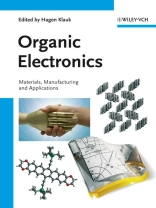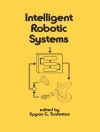Edited and written by the leading researchers and engineers from such companies as Philips, 3M, Xerox, Infineon, Plastic Logic, Eastman Kodak, Dupont, AIXTRON, and Hueck Folien, this book presents unrivalled and undiluted expertise from those who know best how to assess the risks, opportunities and where this technology is really heading.
As such, this practical approach complements the more scientific and fundamentals-oriented literature on the market by providing readers with a first-hand insight into industrial activities to commercialize organic electronics. Following an introduction to the topic, including the history, motivation, benefits and potentials, it reviews recent advances and covers all three important facets of organic electronics: the chemical compounds and materials, manufacturing techniques, and the resulting devices together with their current applications.
Inhaltsverzeichnis
INTRODUCTION
Organic Transistors
ADVANCED MATERIALS FOR ORGANIC ELECTRONICS
High-Performance Pentacene Transistors
Engineered Pentacenes
Organic Semiconductors Based on Polythiophene and Indolo[3, 2-b]carbazole
Electrical and Environmental Stability of Polymer Thin-film Transistors
Gate Dielectrics
Advanced Flexible Polymeric Substrates
MANUFACTURING FOR ORGANIC ELECTRONICS
Reel-to-Reel Vacuum Metallization
Organic Vapor Phase Deposition for Organic Electronics
Thermal Imaging and Micro-contact Printing
Thin-film Transistor Fabrication by Digital Lithography
Manufacturing of Organic Transistor Circuits by Solution-based Printing
DEVICES, APPLICATIONS AND PRODUCTS
From Transistors to Large-Scale Integrated Circuits
Roll-Up Active-matrix displays
Active-matrix Light Emitting Displays
Large-Area Detectors and Sensors
Organic Semiconductor-based Chemical Sensors
Über den Autor
Hagen Klauk received his Ph D in electrical engineering from The Pennsylvania State University in 1999, receiving the Xerox Research Award for his doctorate on organic thin film transistors. In 2000 he joined Infineon Technologies in Erlangen, Germany and since 2005 he has been a research group leader at the Max Planck Institute for Solid State Research in Stuttgart, Germany, where he is investigating a wide range of novel organic device concepts. Dr. Klauk has 60 publications and 8 patents to his name.












